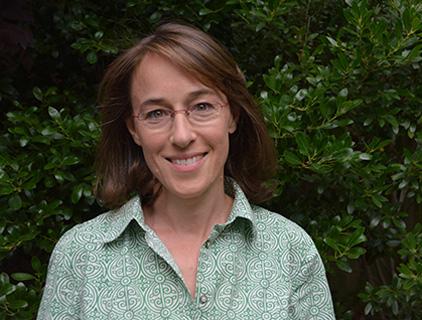Jen Wofford
Jen Wofford

MKI Affiliation:
Instructor
Role:
Instructor
Profile
Jen Wofford's journey has taken her from community organizing to becoming a psychotherapist and back again, always seeking ways to foster deeper healing and resilience. With nearly two decades of experience mobilizing for social justice, economic justice, and environmental action, Jen has witnessed firsthand the burnout that can afflict even the most dedicated activists. Now, she's devoted her work to helping community organizers cultivate the inner strength they need to sustain their efforts over the long haul.
Jen's journey started in community organizing, where she ran state-level organizations and championed progressive causes here in Massachusetts in the 1990s. Her work eventually took her to Washington D.C. to coordinate national campaigns and advocate for legislative change, working for the labor movement. Despite her successes, Jen felt drawn to more individual, healing-focused work. She earned a master's degree in social work and became a therapist.
As a therapist of over 20 years, Jen saw how deep therapeutic work could transform lives. She helped clients heal relationships, process grief, and gain greater self-awareness. Yet she felt the skills she was teaching could also benefit community organizers, leaders, directors, and everyday people. This realization sparked her desire to combine her experience in organizing and therapy to support the healing and resilience of social justice activists.
"I really missed organizing," Jennifer admits. "I started doing some consulting and got a degree in organizational change leadership consulting. My wish has been to put these two skill sets together – the deep healing and awareness that therapy brings and the movement work."
Out of this desire, Jen's "Grounded Resilience" model was born. At its core, Grounded Resilience offers practical tools for managing internal reactions and navigating difficult conversations across differences. The model acknowledges that even the most dedicated activists will sometimes feel anger, sadness, reactivity or stress. Yet by learning to address these "parts" of themselves, individuals can become more centered, self-led, and skillful in the face of stress and conflict.
"Almost all relationships will have conflicts," she notes. "We cannot always want the exact same thing as someone else at the exact same moment. The question is, how do you deal with those conflicts? We will practice specific skills like Nonviolent Communication method which gives people tools to manage difficulties so they can be more effective and resilient."
Through her Grounded Resilience work, now offered for the first time with the Mel King Institute, Jen aims to help organizers, staff, directors and activists build the inner foundations they need to keep going, even in the face of adversity. She believes that by healing and transforming ourselves, we can heal and transform our communities and ecosystems, and become more powerful forces for transformation in the world.
During the workshop, participants will gain concrete skills for boosting flexibility, resilience, self-awareness, and understanding of interpersonal dynamics. The first method she will offer is Imago Relationship Therapy, a surprisingly simple approach that has proven powerful in resolving conflicts.
Jen likes to use a key Imago technique called "mirroring" during her workshops. She explains, "Most of the time when someone says something, you are formulating in your head your response, what you're going to say, your point, your perspective on it. You're just thinking or planning what to say, but with mirroring, instead of you thinking of what you're going to say, you are tracking what the other person is saying really closely, and you're trying to mirror it back without changing it or spinning it or interpreting it. It takes real concentration, and it lets people feel really heard and understood.
Through such hands-on exercises, starting with Imago and Nonviolent Communication method in the morning, and then Somatic experiencing and practices, and Internal Family Systems (inner parts) work in the afternoon, and then integrating these skills, the Grounded Resilience workshop will help participants develop the relational intelligence they need to navigate challenges with greater ease and grace.
